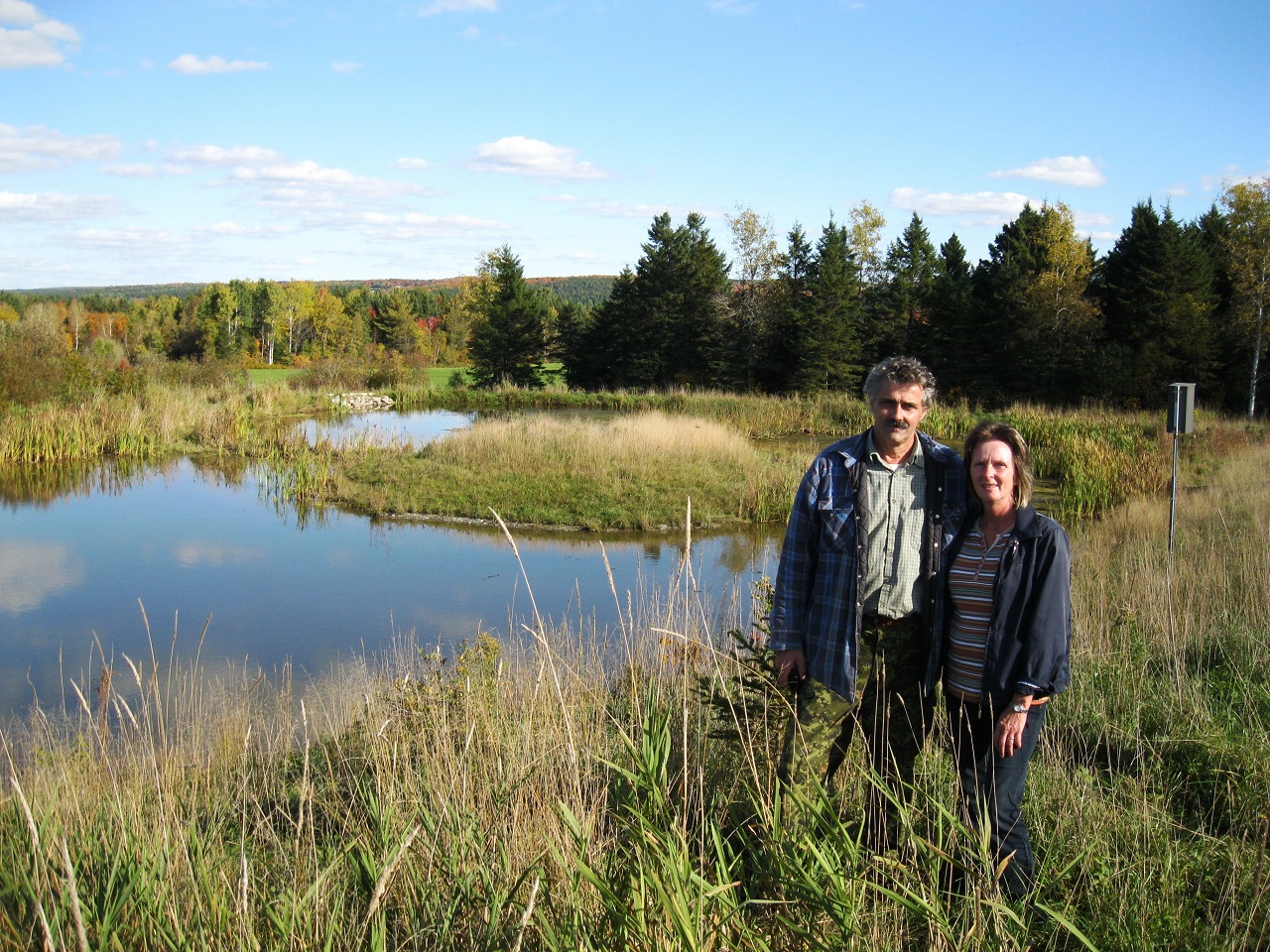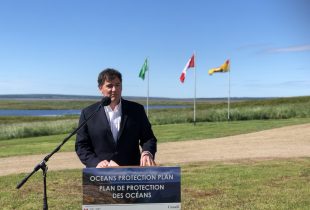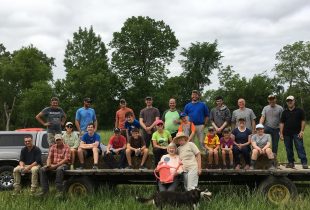Small marsh with a big impact
Quebec producer’s restored wetland is making a big difference for the environment, his farm and his family

As a youngster, Alain Champagne fished and hunted in the rolling Appalachian landscape near the family farm. His family would swim in the nearby river, and even drink the water.
Champagne comes from a long line of agricultural producers. In 1993, he took over that same farm in Saint-Victor-de-Beauce, becoming the 7th generation to work the land. His vision focused on using the land responsibly, and to always work in harmony with its environment. This inspired him to become one of the first producers in Quebec to join an agri-environmental advisory group.
“In the mid-sixties, I saw the environment changing,” says Champagne. “Since I grew up there, I could see the magnitude of the changes that were happening. The water changed colour with the first rains, the river swelled up more quickly, and the banks started to erode. I even saw three road bridges swept away in a great flood.”
“I started to feel like I was being robbed of the idyllic place of my youth, where I hunted and fished with no worries for tomorrow. I believed that intensified land drainage and agricultural practices that clashed with nature were the cause. I felt like I needed to act.”
Champagne became involved in promoting practices that were more in harmony with the environment. He participated in conferences and gave lectures and training. He also decided to lead by example.
Champagne knew he could take unproductive, problem-prone land out of production without hurting his profits. In 2013, he created a retention basin at the foot of a hill, to collect water, then developed it into a marsh, to filter the water and minimize the environmental impact of production. He also hoped to see some of the native wildlife return to the restored habitat.
Champagne’s project was supported by funding from the Prime-Vert program and the Quebec Wildlife Foundation. Experts with Ducks Unlimited Canada in Quebec helped this long-time supporter fine-tune the planning and development of the marsh.
“Producers should take the time to observe how things have deteriorated in their environment, starting with the muddy water flowing in the ditches,” says Champagne. “The vast majority have areas on their land where it is difficult to carry out basic farming without risks to equipment or sinking the machinery.”
Today, Champagne’s wetland is filtering water as he had planned. He’s also seen the return of vegetation and wildlife, including fish, frogs, mink and several species of birds. His marsh has become a place for his family to relax, and he feels that a new balance has been established.



